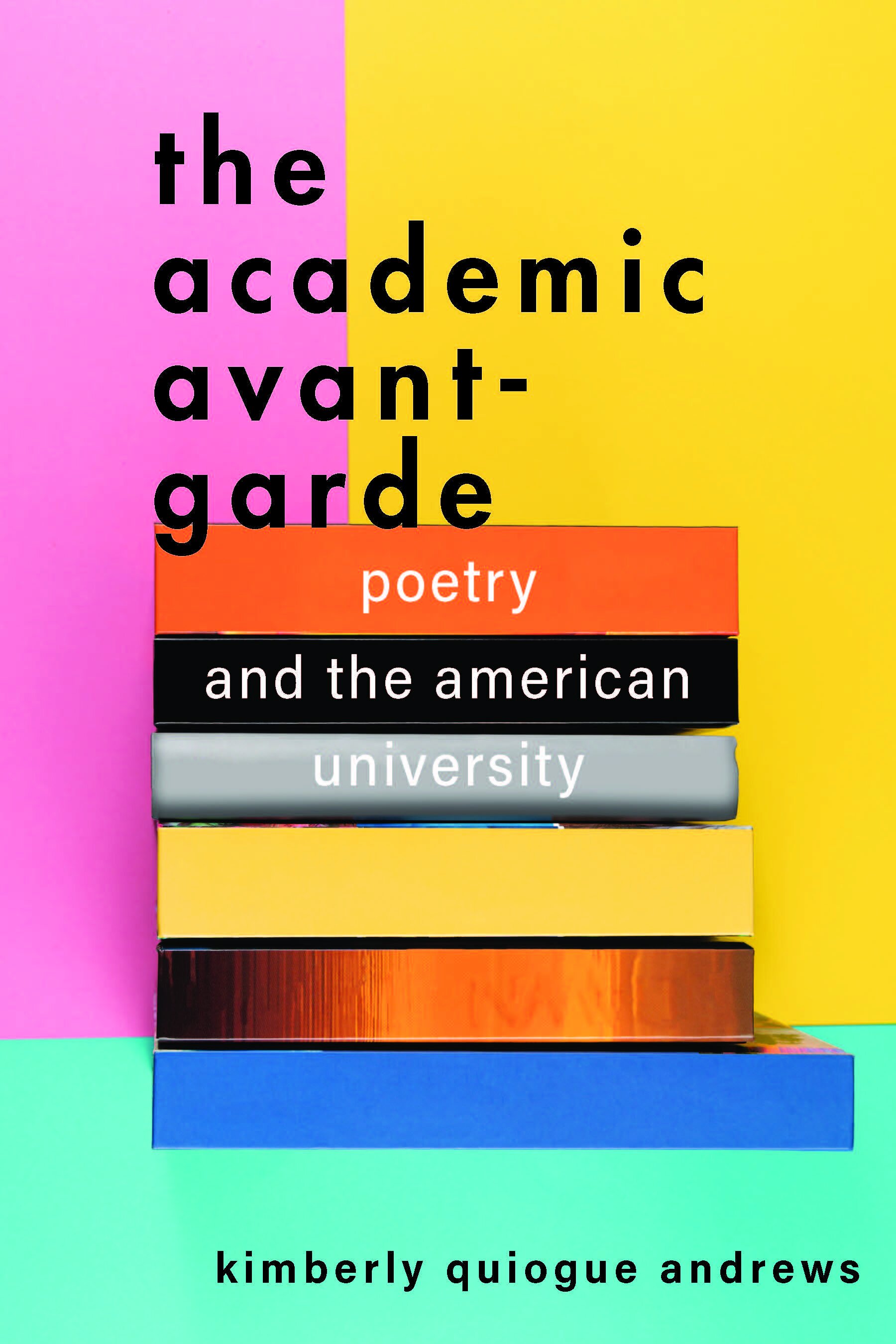BOOKS
The Academic Avant-Garde: Poetry and the american University
2024 Modernist Studies Association Book Prize Shortlist
“A fine-grained, critical interrogation of the overlaps and relays between spheres of university-affiliated literary critics and poets themselves. Amid careful, attentive engagement with the poets it studies, this book shows that if the humanities are in crisis it is precisely because of the pressure they put on other developments within society to which they might stand as a check.”
— Anthony Reed, Vanderbilt University, author of Soundworks: Race, Sound, and Poetry in Production
Winner of the Akron Prize for Poetry
Colonization, class dynamics, an abiding loneliness, and a place’s titular fruit—tiny Filipino limes, the frozen berries of rural America—all serve as focal markers in a book that insists that we hold life’s whole fragrant pollination in our hands and look directly at it, bruises and all.
The button below goes to the University of Akron Press distributor site. To purchase in Canada, click here.
A BRIEF HISTORY OF FRUIT
“The ancient obsessions that bind these poems—language, relation, gender, embodiment—are reconstituted under Andrews’ pen. BETWEEN holds me in the space of that ever-crucial question: How else might we be?”
–Claire Schwartz, author of Civil Service and Bound
BETWEEN
Poems/Essays/&C
Below, you can find further information about my research and writing interests, as well as a selection of my recent work available online. For a full list of publications, or if you do not have access to the databases on which some of my scholarship is held, please contact me.
Creative work
My current creative project is a book of poems and essayistic fragments, tentatively entitled The Lake, that focuses on the history and tropology of melancholy—a term that has always referred to mood and temperament, but has been variously linked to medical disorders, humors and star alignments, and mythologies across cultures and time periods. While a melancholic disposition has often been associated with artists and thinkers, I have found few works of creative writing that have explicitly interrogated the overdetermined nature of this link—what, in other words, it is about thinking that is either caused by or causes sadness so persistent that it can be classified as disordered. A formally innovative work, The Lake weaves together prose segments grounded in historical research with fragmented lyric meditations on the state of affect in the present, arguing in the end that we do not yet know how to read narratives of illness that do not posit an eventual recovery.
The selection of poems below encompasses work from this new project, as well as poems from A Brief History of Fruit.
Some poems online:
”Essay on Tilt” in Guernica
“The server at my local tell me all viruses arrive on this planet via comet” and “The Donkey” in Sixth Finch
”Vita Speculativa” in Passages North
2 poems in The Florida Review
“Postantiquity” in Redivider
2 poems in Anomaly
“Burial at Sea” in The Journal
2 poems in Nat. Brut
“The Result of an Overabundance of Scenery” in Tinderbox Poetry Journal
2 poems in Underblong
2 poems in Grist
“How to Get Into a Poem” in Poetry Northwest
criticism
As a scholar, I work primarily on poetry and poetics, with a special emphasis on American poetry of the 20th and 21st centuries. I am interested in particular in the relationship between poetic style and institutional contexts. My first book, The Academic Avant-Garde (2023, Johns Hopkins University Press), is a study of the effects that developments in the history of literary criticism and academic work more broadly have had on the aesthetics and methodologies of experimental American poetry. Its primary argument is that the labor and discursive stylings of textual and historical analysis, often seen as incompatible with the creation of literary writing, are in fact fundamental to the work of a range of highly influential and innovative poets. The book traces the parallel histories of reflexive discourses in both literary criticism and creative writing in the age of their professionalization, while intervening into debates about the value of the humanities writ large. Chapters organized by categories of labor (such as teaching) and methodological work (such as theorizing) provide a holistic picture of the humanities’ current professional remit, while also being attentive to that picture’s history. Each category is anchored by a poetic case study, or series thereof, that gives the category a stylistic or formal shape. Throughout, The Academic Avant-Garde demonstrates that the very qualities often taken as a mark of poetry's vanguardism—deep logical complexity, abstract cogitation, a commitment to process analysis—are now often inextricable from the academic contexts of their creation and reception.
I also have interests in translation theory and intellectual history, with an emphasis on the phenomenology of disciplines and disciplinarity. I am in the very beginning stages of outlining two new projects: one that asks whether literary studies has something that could be called a recognizable aesthetics, and another that examines the fate of the poetic line.
Recent critical writing:
“Poetry in the Program Era” in The Cambridge Companion to Twenty-First Century American Poetry, ed. Timothy Yu
“Resisting the Intelligence Almost Successfully: Wallace Stevens’s ‘Academic’ Style” in Modernist Cultures
“Trade Secrets: Poetry in the Teaching Machine” in New Literary History
“Learning to Read (with) John Ashbery” in the Los Angeles Review of Books
“Because I Have Nothing To Say: Julian Rosefeldt’s Manifesto and the Choral Voice” in ASAP/J
“What does translation know?” in Textual Practice


